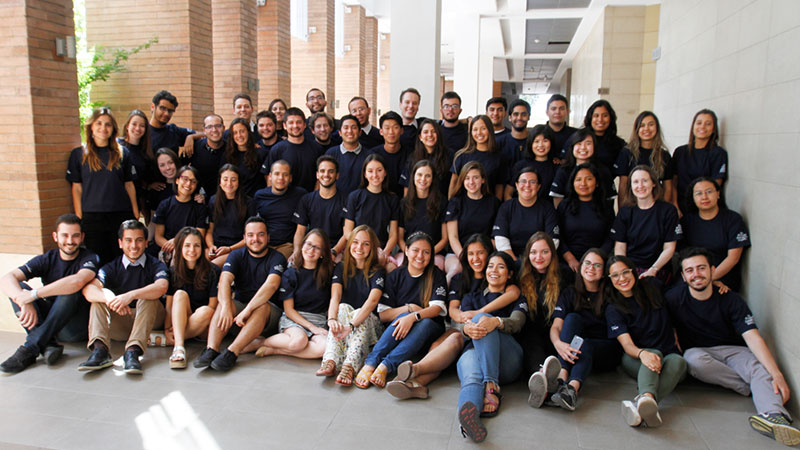
Hailing from 15 countries and four continents, 50 young leaders convened at the University of the Andes (UANDES) in Santiago, Chile for the 10th annual TFAS Santiago program.
From Jan. 6-20, 2018, these TFAS students were fully immersed in a diverse cross-culture environment where they expanded their leadership skills and explored the philosophical and moral underpinnings of a free society.
The most important idea I took away from the program is that freedom is a gift and we should always fight for it … we should fight for it every time, in every moment.”– Elvira Poklepovic ’18
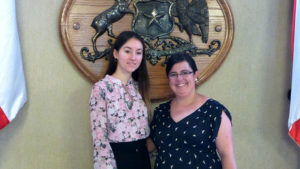
Inside the TFAS classroom, coursework was divided into two sections – historical analysis and current application – providing a thorough overview of the development and sustainment of free societies throughout history and today.
During the first week of the program, longtime TFAS professor and executive director of the Clemson Institute for the Study of Capitalism, Dr. C. Bradley Thompson, taught “Political Philosophy of the American Founding.” Geared toward understanding the American founding and moral foundations necessary for building a free society, the course guided students through the writings of notable scholars including Tocqueville, Adams, Locke, Rand and Bloom.
TFAS participant and UANDES student Elvira Poklepovic ’18 of Chile said Thompson’s class showed her how morality and political philosophy are all intertwined in today’s culture and political atmosphere – something she said appropriately set the groundwork for discussions on how to apply freedom in today’s societies.
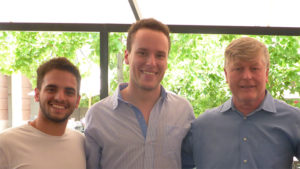
“If you don’t have a moral foundation, it means nothing,” she said. “It’s important to have a moral foundation, and professor Thompson did wonderfully in explaining that. He really makes a point to teach what the world would and should be like, and he gives you the aim and strength to work toward and achieve it.”
During the second week of the program, esteemed professors, elected officials and business leaders from throughout Latin America taught the course “Latin American Economic and Political Development” through guest lectures, discussion sessions and in-depth presentations. These speakers included UANDES law professor Jaime Arancibia; UANDES journalism professor Ricardo Leiva; UANDES dean of journalism Juan Ignacio Brito; UANDES president José Antonio Guzmán; UANDES economics professor Juan Nagel; commercial engineer and author Rafael Rincón; UANDES economics professor Francisco Ulloa; UANDES secretary general Luis Alejandro Silva; UANDES philosophy professor Dr. Javier Pinto and Chilean politician and scholar Jaime Bellolio.
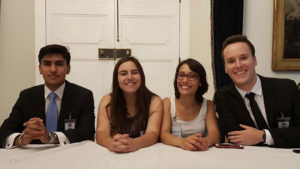
The experiences and lessons shared by these professors sparked discussions and provided a unique perspective on Latin American history and the local issues affecting the region’s political economy. The topics ranged from operations of private businesses in Latin America; the political, constitutional and economic example of “The Chilean Miracle,” to populism and socialism impacts in Venezuela and what the future holds for all of Latin America.
Once again, Poklepovic was motivated by what she learned inside the TFAS classroom. She found Professor Rincón’s lesson on applications of leadership to be especially exciting and a different viewpoint than she was accustomed to hearing in her academic career.
“[Professor Rincón] explained how leadership is very different than what we think, and how through our leadership, we should be able to transform how people think. He left us speechless,” she said.
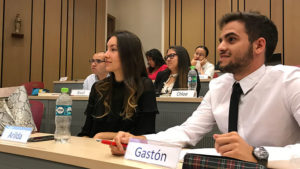
Outside of the TFAS classroom, the participants enjoyed many cross-cultural and social activities including a traditional Chilean lunch experience; tours of La Moneda, the Chilean presidential palace; Chilean Congress; artist Pablo Neruda’s Museum “La Sebastiana;” and a cultural presentation night where students shared aspects of their home countries’ histories and traditions through songs, dances, stories and presentations.
National University of Rosario student and participant Daniel Medvedovsky ’18 of Argentina said these extracurricular activities were key to building cross-cultural relationships and understanding among the diverse student body.
“Intercultural exchange is a great way to fight ignorance,” Medvedovsky said. “Although people come from different places and cultures and lifestyles, we are all human, and that was the most important thing I could have taken away from TFAS Santiago.”
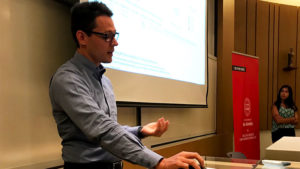
In addition to learning from each other’s cultures, students were also able to learn from one another’s academic backgrounds and professional experiences. Mackenzie Presbyterian University master’s degree candidate and participant Christopher Capelache ’18 of Brazil is working at Mackenzie’s Center for Economic Freedom where his focus is in research and building online dashboards to create awareness in economic freedom. During TFAS Santiago, he gave an overview of his work to share his findings and help his fellow classmates learn more about the economic situation in Latin America.
Capelache thanked TFAS supporters for this opportunity to present and shared that the overall program gave him hope to “keep waving the freedom flags around the world.”
“It was inspiring for me to see that people in a developed country are concerned that people around the world are learning about the importance of economic freedom,” he said. “I really hope I can keep the seed of freedom growing. I’m glad you could do this for me today, and I wish someday I can do it for someone else.”
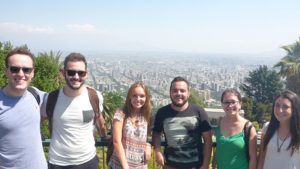
Like Capelache, Poklepovic also walked away from the program with a new appreciation for freedom and awareness of its fragility.
“The most important idea I took away from the program is that freedom is a gift and we should always fight for it … we should fight for it every time, in every moment,” she said.
When explaining her new-found responsibility of fighting for freedom, Poklepovic also shared that she now believes that battle is part of her “purpose,” and that because of TFAS, she is able to forge freedom’s path for future generations.
“I believe you have two ways to change the world: education or politics,” she said. “You can’t change the world if you don’t have the tools. TFAS gave me the tools.”
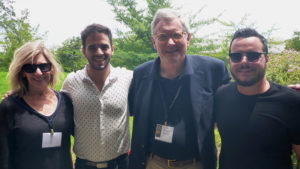
Professor Thompson imparts many significant lessons during the program, but one that students seem to passionately repeat each year is, “Ideas have consequences.”
“This summarizes the whole objective and experience of TFAS,” said Capelache. “It’s not just important for you to believe in something – what you believe in can have real-life consequences. If you believe, you try to convince people and that can eventually change the world, for better or worse. So, we have to be very responsible with the ideas we adopt, propagate and engage in – they create consequences.”
It’s not just important for you to believe in something. What you believe in can have real-life consequences. If you believe, you try to convince and that can eventually change the world … So, we have to be very responsible with the ideas we adopt, propagate and engage in – they create consequences.”– Christopher Capelache ’18
Since 2008, TFAS has educated more than 500 young leaders through TFAS Santiago who are now defending freedom in a region where it has long been under attack. TFAS Santiago alumni are making an impact as founders and researchers at free-market think tanks, journalists for major newspapers and elected officials. To learn more about the TFAS Santiago program, visit our international program webpage.

